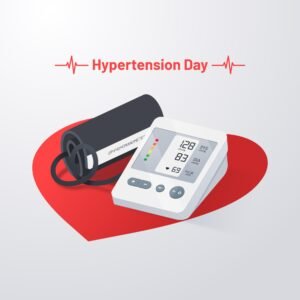Overview
Bloating is a common digestive symptom characterized by a feeling of fullness, tightness, or distension in the abdomen. It can occur after meals, during hormonal changes, or as a result of underlying gastrointestinal issues. While occasional bloating is generally harmless, persistent or severe bloating may indicate digestive disorders, food intolerances, or other health concerns. In Korea, gastroenterology clinics and hospitals provide advanced diagnostic tools, dietary counseling, and therapeutic interventions to identify and manage the causes of bloating effectively.
Key Facts
▶ Prevalence: Affects people of all ages, especially adults with dietary or digestive sensitivities.
▶ Appearance: Abdominal distension, visible swelling, or feeling of tightness.
▶ Associated Symptoms: Gas, belching, constipation, diarrhea, or abdominal discomfort.
▶ Causes: Digestive disorders, food intolerances, hormonal fluctuations, or lifestyle factors.
▶ Treatment Options in Korea: Dietary management, medications, probiotic therapy, and minimally invasive procedures.
What is Bloating?
Bloating is the sensation of increased abdominal pressure or fullness, often accompanied by visible distension. It may be acute, appearing suddenly after meals, or chronic, persisting over weeks or months.
▶ Acute Bloating: Usually triggered by dietary factors, overeating, or gastrointestinal upset.
▶ Chronic Bloating: Linked to conditions such as irritable bowel syndrome (IBS), celiac disease, or small intestinal bacterial overgrowth (SIBO).
▶ Associated Sensations: Tightness, fullness, gas accumulation, and discomfort in the abdominal region.
Note: Bloating is a symptom rather than a diagnosis; identifying the underlying cause is essential for effective management.
What Symptoms Are Related to Bloating?
▶ Abdominal Fullness: Sensation of being overly full or heavy.
▶ Visible Swelling: Distended or rounded abdomen.
▶ Excessive Gas: Belching or passing gas frequently.
▶ Constipation or Diarrhea: Often associated with digestive disorders.
▶ Cramping or Pain: Mild to moderate abdominal discomfort.
▶ Nausea: Feeling queasy or unsettled in the stomach.
▶ Appetite Changes: Reduced desire to eat due to fullness.
▶ Fatigue: Chronic bloating can cause discomfort and reduced energy levels.
What Causes / Possible Causes
Bloating can result from dietary, gastrointestinal, hormonal, or systemic factors:
▶ Dietary Triggers: High-fiber foods, carbonated beverages, artificial sweeteners, and overeating.
▶ Food Intolerances: Lactose, gluten, or fructose malabsorption.
▶ Digestive Disorders: Irritable bowel syndrome (IBS), inflammatory bowel disease (IBD), or gastroesophageal reflux disease (GERD).
▶ Constipation: Slowed bowel movements leading to gas accumulation.
▶ Small Intestinal Bacterial Overgrowth (SIBO): Excess bacteria causing fermentation and gas.
▶ Hormonal Fluctuations: Pre-menstrual bloating due to fluid retention or estrogen changes.
▶ Medication Side Effects: Certain antibiotics, painkillers, or medications affecting digestion.
▶ Other Medical Conditions: Liver disease, kidney disorders, or pancreatic insufficiency.
Note: Understanding triggers, patterns, and associated symptoms helps clinicians determine the root cause of bloating.
When Should I See a Doctor?
▶ Persistent or Severe Bloating: Lasting more than a few weeks or interfering with daily life.
▶ Associated Pain: Severe cramping, sharp abdominal pain, or tenderness.
▶ Changes in Bowel Habits: Constipation, diarrhea, or blood in stool.
▶ Unexplained Weight Loss: May indicate underlying medical conditions.
▶ Nausea or Vomiting: Accompanied by bloating or abdominal discomfort.
▶ History of Digestive Disorders: Pre-existing conditions requiring monitoring.
▶ Other Concerning Symptoms: Fever, jaundice, or swelling in other areas.
Tip: Early evaluation ensures proper diagnosis and prevents complications related to chronic gastrointestinal disorders.
Care and Treatment
Management depends on the underlying cause, severity, and frequency of bloating:
▶ Dietary Adjustments: Avoiding trigger foods, eating smaller meals, and increasing hydration.
▶ Probiotics: Supporting healthy gut bacteria to reduce gas and improve digestion.
▶ Medications: Antacids, anti-gas remedies, laxatives, or antibiotics for bacterial overgrowth as prescribed.
▶ Lifestyle Modifications: Regular exercise, stress management, and mindful eating habits.
▶ Bowel Management: Treating constipation to reduce abdominal distension.
▶ Monitoring Symptoms: Keeping a food and symptom diary to identify triggers and patterns.
Treatment Options in Korea
Medical Evaluation:
▶ Gastroenterology Consultation: Assessment of digestive health, symptoms, and dietary patterns.
▶ Laboratory Tests: Blood tests, stool analysis, and allergy/intolerance screening.
▶ Imaging: Ultrasound, CT scan, or endoscopy to evaluate structural or functional issues.
▶ Breath Tests: For lactose intolerance or small intestinal bacterial overgrowth (SIBO).
Advanced Therapies:
▶ Medication Management: Prescribed drugs to treat underlying causes such as IBS, IBD, or infection.
▶ Dietary Counseling: Personalized nutrition plans to minimize bloating and improve gut health.
▶ Minimally Invasive Procedures: Endoscopic treatment for polyps, strictures, or other gastrointestinal abnormalities.
▶ Integrative Approaches: Stress management, acupuncture, and probiotics to enhance gut function.
Rehabilitation & Support:
▶ Patient Education: Guidance on identifying triggers, modifying diet, and adopting healthy lifestyle habits.
▶ Follow-Up Care: Regular monitoring to assess improvement and prevent recurrence.
▶ Specialist Clinics: Korean gastroenterology centers offer integrated care combining diagnostics, medical treatment, and dietary support.
Outcome: With proper evaluation and management in Korea, most cases of bloating are effectively controlled, reducing discomfort, improving digestion, and enhancing overall quality of life.













